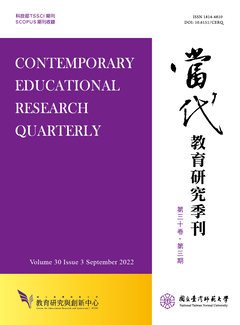

研究目的
本研究旨在探析二十世紀初期英屬馬來亞的華人與馬來族群知識分子的女子教育思想。本文研究目的為:(1)探究華人與馬來族群中女子教育思潮的傳播脈絡及潛藏其中的族群意識;(2)以知識女性劉韻仙(1901—1975)及再儂.蘇萊曼(1903—1989)(Zainon binti Sulaiman)為例,分析女性在推動教育所扮演的角色及教育觀。
研究設計/方法/取徑
本研究屬教育史研究,採用文件分析法,使用報刊、雜誌、校刊等史料來再現女子教育發展概況。
研究發現或結論
1. 身處馬來亞的華人族群與馬來族群分別受社會改革思想和宗教改革思想洗禮,將女子教育視為改變族群、提升族群地位、改革社會的途徑而加以推廣。
2. 劉韻仙受中國「體育救國」教育理念影響,尤為注重女學生在體育方面的培育;再儂.蘇萊曼則因馬來民族身份及伊斯蘭信仰背景,在教育中偏重伊斯蘭宗教教導,以培養賢妻良母為女子教育的宗旨。
研究原創性/價值
1. 馬來亞女子教育的研究數量既少,且基本局限於華人和馬來族群各自的教育發展,本研究將這兩個族群的女子教育置於橫向維度進行考察,系統呈現女子教育發展的共通性。
2. 探析華人和馬來知識女性在教育版圖的擴張過程中扮演的角色,超越傳統以男性知識分子為分析對象的研究取向,深化女子教育研究內涵。
Purpose
This research intends to explore women’s educational thought among the Chinese and Malay intellectuals in early 20th century British Malaya. The objectives of this research are: (1) to investigate the dissemination of female education among the Chinese and Malay and its underlying ethnic consciousness; (2) to analyze the role women played and their outlook on education by studying contributions made by Liew Yuen Sien (1901-1975) and Zainon binti Sulaiman (1903-1989).
Design/methodology/approach
This research examines the history of education by utilizing sources including newspapers, periodicals, and school magazine. This subject was subjected to document analysis.
Findings/results
1. Social and religious reforms led the Chinese and Malays in British Malaya to advocate for female education as a means to improve and elevate their societal status and revolutionize their respective communities.
2. In contrast to Zainon, who emphasized on Islamic teachings and sought to nurture devoted wives and mothers due to her Malay Islamic identity, Liew Yuen Sien was influenced by Chinese nationalism ideas and focused on female athletics.
Originality/value
1. Studies on women’s education in Malaya are scarce, and they were limited to separate studies on the educational development of the Chinese and Malay communities. This study puts the women’s education of these two communities in a horizontal dimension, and systematically presents the similarities in the development of women’s education.
2. To analyse the role of Chinese and Malay intellectual women in the development of their respective ethnicities’ educational landscape. This research goes beyond the traditional analysis of male intellectuals and deepens the connotation of the study of women’s education.

This work is licensed under a Creative Commons Attribution-NonCommercial 3.0 Taiwan License.
Center for Educational Research and Innovation, National Tawain Normal University
162, Ho-Ping East Rd, Sec. 1, Taipei, Taiwan | Tel:+886-2-7749-3670 | E-mail: cerecerq@gmail.com
CERI | NTNU | E-mail Alerts | Open Journal System
© 2014 CERI-NTNU
